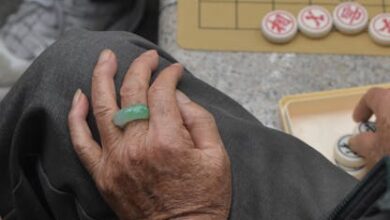Echoes of Triumph: The October Victory’s Enduring Legacy

History isn’t just a chronicle of bygone eras; it’s a living, breathing tapestry that shapes our present and continuously inspires our future. For nations, key moments in their past aren’t simply dates on a calendar; they’re fundamental pillars of identity, resilience, and hope. This truth was vividly on display recently in Egypt, where a night of profound commemoration transcended a mere anniversary, becoming a powerful testament to peace and unwavering national spirit.
On Saturday, October 25th, the New Administrative Capital’s magnificent City of Arts and Culture played host to the “Nation of Peace” celebration. This wasn’t just another state event; it was a deeply symbolic gathering marking the 52nd anniversary of the October Victory of 1973. For Egypt, that victory signifies more than a military triumph; it embodies the spirit of a people who, against all odds, reclaimed their sovereignty and dignity. It’s a story of national resolve, and this recent commemoration served as a poignant reminder that the lessons of the past are as relevant today as they were five decades ago.
Echoes of Triumph: The October Victory’s Enduring Legacy
To truly understand the “Nation of Peace” celebration, one must first grasp the monumental significance of the October Victory of 1973. This pivotal moment saw Egyptian forces reclaim Sinai territories, which had been under occupation since 1967. It was a feat of incredible planning, courage, and sheer will that fundamentally shifted the regional dynamic and restored national pride.
The anniversary is more than just a historical recall; it’s an annual reaffirmation of Egypt’s enduring spirit, its capacity for resilience in the face of adversity, and its unwavering commitment to its land and people. It speaks to a deep-seated belief that even after setbacks, a nation can rise stronger, united by a common purpose. This legacy forms the bedrock of the country’s collective identity and continues to inspire generations.
President Abdel Fattah Al-Sisi’s words during the celebration echoed this sentiment perfectly: “People who refuse defeat,” he noted, “are granted victory by Allah.” This isn’t just a statement of faith; it’s a profound cultural insight into the Egyptian psyche—a determination to overcome, to persevere, and to emerge triumphant even when the path seems steepest. It’s a reminder that true strength isn’t just physical, but an unyielding spirit forged in the fires of challenge.
A Symphony of Culture and Diplomacy: Celebrating the “Nation of Peace”
The “Nation of Peace” celebration itself was a masterclass in blending cultural grandeur with profound diplomatic messaging. Held in the breathtaking City of Arts and Culture, the event was designed to be both an artistic spectacle and a clear declaration of Egypt’s contemporary values and aspirations.
The evening commenced with the solemn recitation of verses from the Quran, setting a tone of reflection and spiritual grounding. This was followed by a speech that deliberately centered on the theme of peace, underscoring Egypt’s consistent efforts to foster stability in a complex region. It was a careful articulation of intent, emphasizing that while the nation honors its past victories, its gaze is firmly fixed on a future defined by tranquility and cooperation.
Star-Studded Voices for Unity
What truly elevated the night was the star-studded lineup of Egyptian and Arab artists who lent their voices and talents to the cultural program. Imagine the iconic Mohamed Mounir, the soulful Assala Nasri, and the powerful Amal Maher, all gracing the stage. These are not just performers; they are cultural ambassadors, their music resonating with millions across the Arab world. Their presence transformed the celebration into a powerful expression of shared heritage and collective aspiration, proving that art and music often speak louder than words.
Their performances, infused with national pride and a longing for peace, served to amplify the evening’s core messages. It was a harmonious blend of entertainment and profound national statement, reminding everyone present, and those watching from afar, of the unifying power of culture and shared identity.
Egypt’s Diplomatic Heartbeat: A Call for Calm in Gaza
Amidst the cultural splendor, President Al-Sisi’s address provided crucial diplomatic context. He expressed heartfelt gratitude for the cessation of hostilities in Gaza, a clear nod to Egypt’s tireless efforts behind the scenes. This wasn’t a passive observation but a subtle yet powerful acknowledgment of Egypt’s active role as a mediator and a force for stability in the region.
His speech highlighted the culmination of these diplomatic endeavors, notably the Sharm El-Sheikh Summit for Peace. This detail underscored Egypt’s proactive stance, positioning the nation not just as a commemorator of its past but as a pivotal player in shaping a more peaceful future for its neighbors. The emphasis on national unity and the strength of the Egyptian people wasn’t just rhetoric; it was a foundational principle, presented as the source of Egypt’s resilience in the face of regional adversity.
Beyond Borders: Solidarity and the Human Connection
Perhaps one of the most impactful aspects of the “Nation of Peace” celebration was its clear and resonant expression of Egypt’s unwavering support for the Palestinian cause. This was woven into the fabric of the event, demonstrated not just through official statements but through heartfelt artistic performances.
Artists coming together to express solidarity and resilience transcended political discourse, tapping into a deeper human empathy. Their songs and presentations spoke volumes about a shared struggle, a common humanity, and the collective hope for justice and peace.
Then came the moments that truly touched hearts. The interaction between President Al-Sisi and a young Palestinian girl became a powerful symbol. It was a fleeting, yet profoundly moving, exchange that humanized the entire discourse. In that moment, the complexities of geopolitics faded, replaced by a simple, direct connection between a national leader and an innocent child representing a people yearning for peace and a normal life. This brief, tender interaction spoke volumes about the compassion driving Egypt’s stance, illustrating that behind the diplomatic efforts lies a genuine human concern.
It’s these small, unscripted moments that often define the true character of an event, transcending grand speeches and elaborate productions. They remind us that even amidst weighty historical commemorations and complex diplomatic maneuvers, the pursuit of peace is ultimately about protecting human lives and fostering a sense of hope for the most vulnerable among us.
A Vision for Tomorrow: Peace, Resilience, and Unity
The “Nation of Peace” celebration in Egypt was far more than an anniversary event; it was a vibrant tapestry woven with threads of history, culture, diplomacy, and profound human empathy. It brilliantly showcased Egypt’s journey from a nation that steadfastly refused defeat in 1973 to one that actively champions peace and stability today. The evening was a powerful declaration of national unity, a tribute to the enduring spirit of the Egyptian people, and a clear signal of their commitment to a peaceful future, both within their borders and across the region.
Through grand cultural performances and heartfelt diplomatic gestures, Egypt reaffirmed its identity as a beacon of resilience. It was a night that not only honored the victories of the past but also illuminated the path forward, demonstrating that true strength lies not just in remembering triumphs, but in actively striving for a world where peace prevails, and every child can look forward to a brighter, more secure tomorrow.





